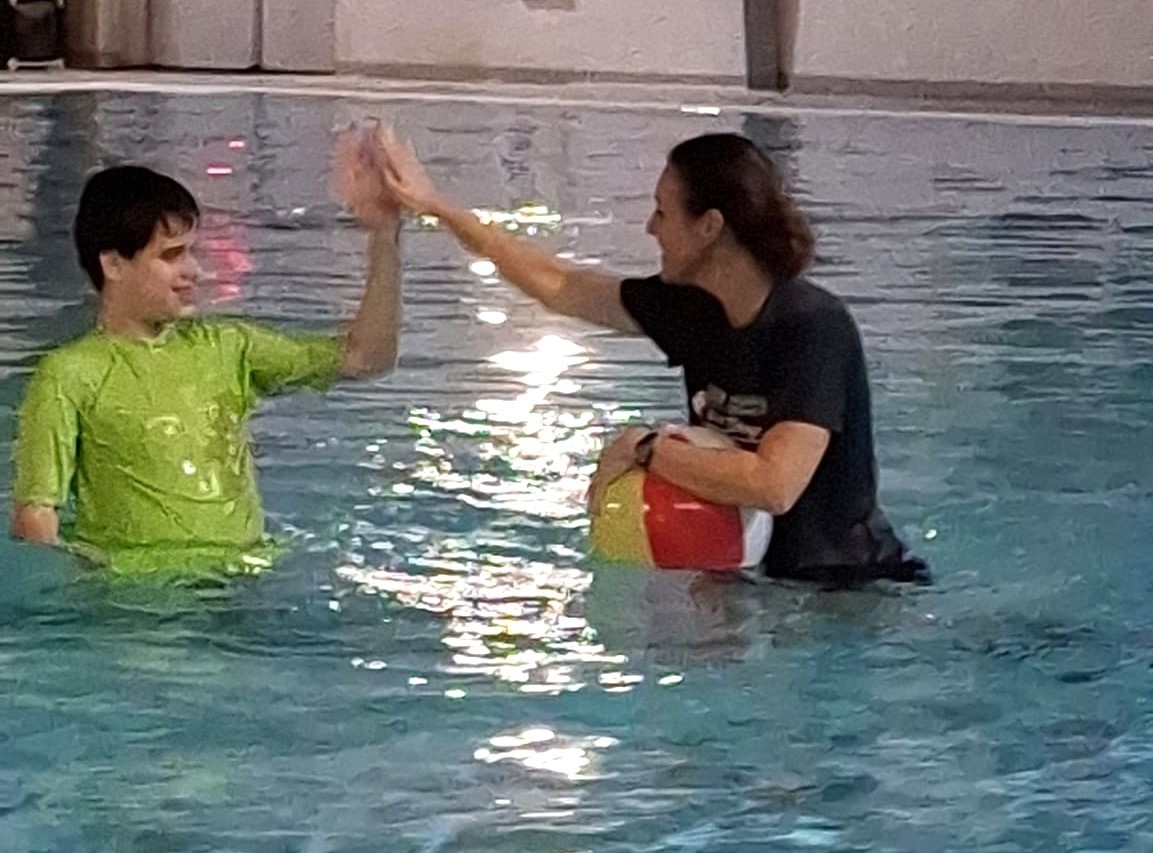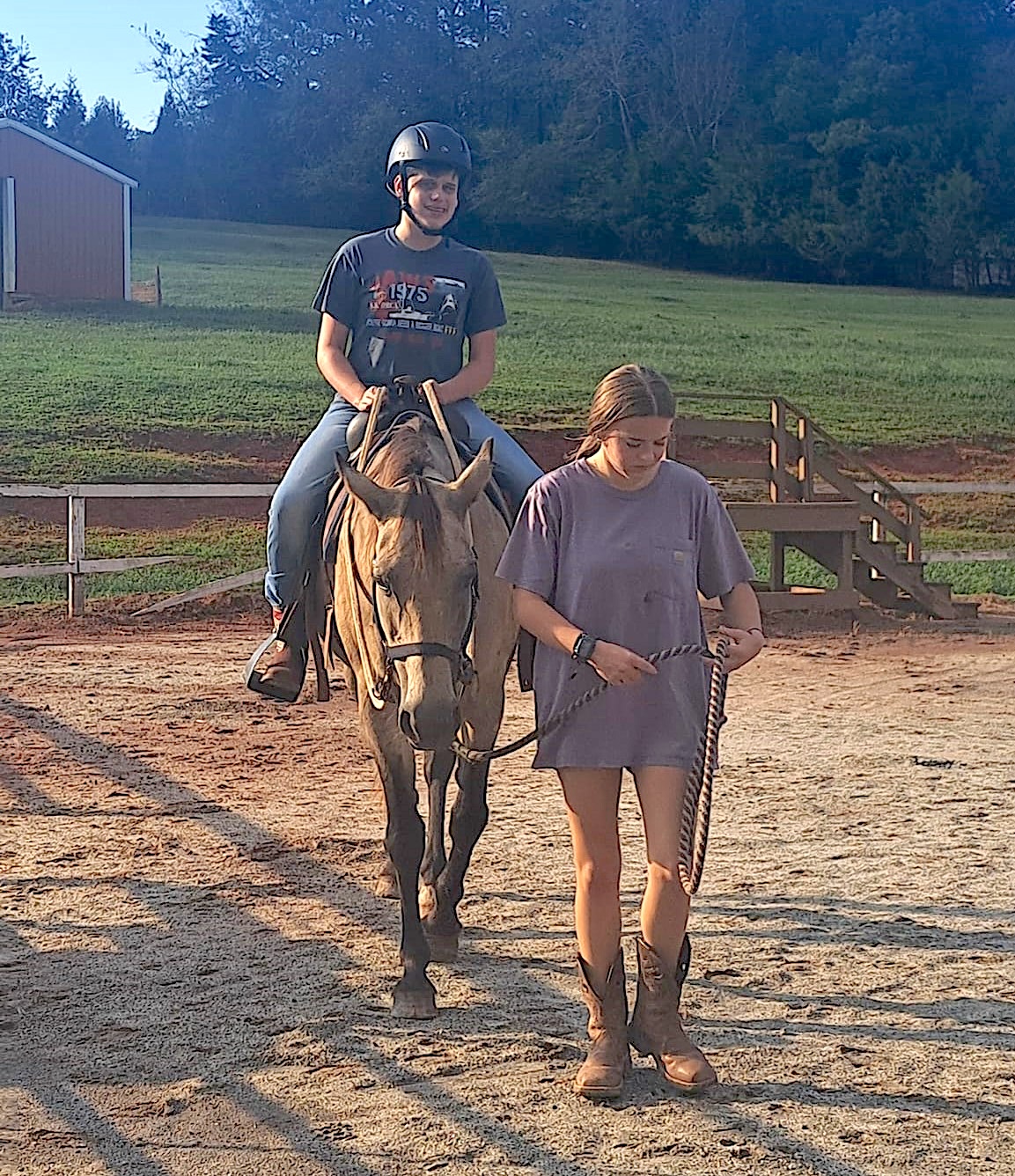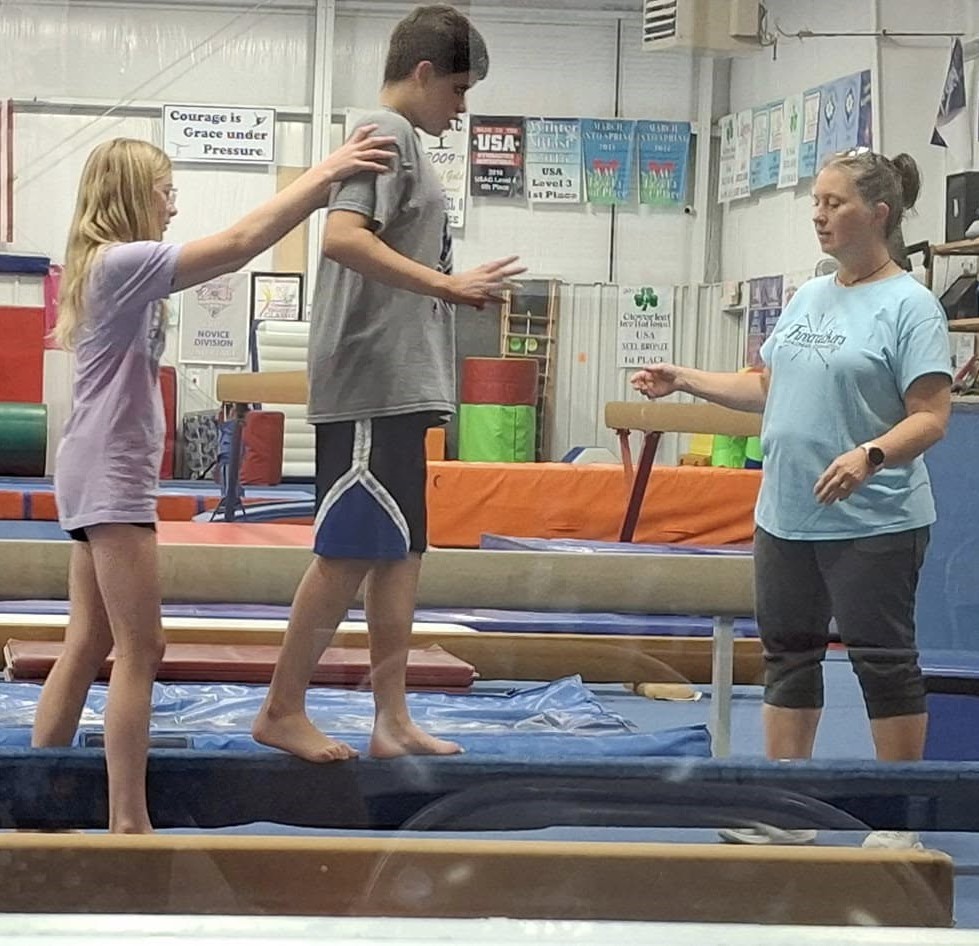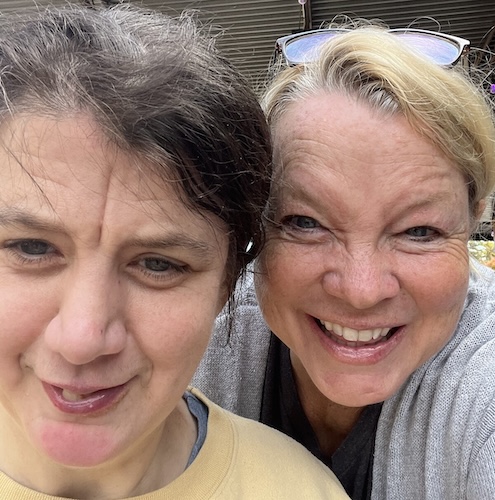
She wants to fly higher than birds and run faster than cheetahs. She wears a red cape with a gold “A’ emblazoned on the back. The “A’ stands for autism. Meet Jennie and the author who brought her story to life, her sister, Nora Almazan.
Jennie was born in 1977. Up until that time, treatment for autism was very limited. According to the National Autism Center at May Institute, most children diagnosed on the autism spectrum were placed in institutions far from the public eye to live out their lives.
Although Jennie’s family kept her sheltered for several years, by the time Nora was in high school, she began working closely with her sister, focusing initially on her communication skills.
“I would go with her to special classes and camps for children with disabilities. I learned basic sign language to better communicate with Jennie and help her with signing or spelling words,” Almazan explained.

After graduating high school, Nora attended the University of Georgia. Her dad bought a house in Athens so Jennie could get specialized help at UGA. Nora continued working with her sister on communicating and other life skills, including eating properly and dressing herself.
“Jennie has made progress. She developed a habit of taking off her clothes whenever she wanted to. She doesn’t do that anymore. We’ve worked on eating properly. She now knows to take her plate and utensils to the counter when she is finished eating. She is 47 years old, and even though we aren’t sure of her mental capacity, I think she understands more than she is given credit for.”
According to the National Institute for Health (NIH), about 25 to 35% of children diagnosed with autism are nonverbal. Just because someone is nonspeaking does not mean they’re non-thinking.
For example, notable figures throughout history, including Wolfgang Mozart, Albert Einstein, and Isaac Newton, showed signs of autism and have been recognized for their exceptional intellectual abilities.
The author and caregiver
Nora’s book, Jennie Jenkins’ Superpowers, was written after her dad passed away. Soon after her book was finished, her mom fell. Now, Nora cares for her mom, three foster children from Guatemala, and her sister Jennie, who moved in with her last year at her home in Clarkesville, Georgia.
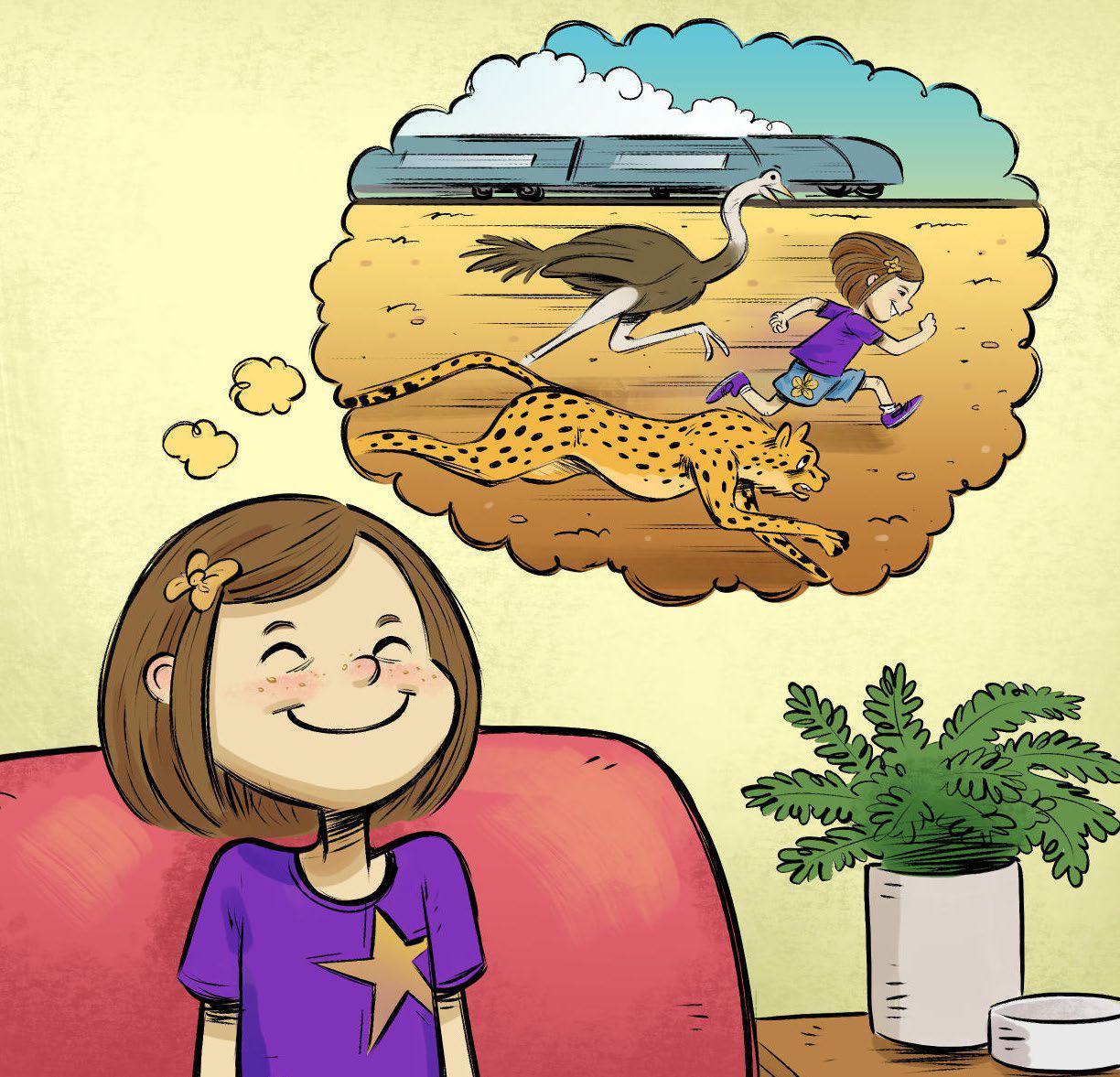
No wonder Jennie has superpowers; some of that energy and ability must have rubbed off from her sister Nora.
Jennie inspired the book, but the story also came from Nora’s heart, not only for her sister’s challenges but for any child with intellectual disabilities or behavioral difficulties.
“I believe there is more awareness now of what children need to be successful, especially those with special needs and abilities. We must be more vocal about differences and similarities and celebrate those. I wanted to be one of those voices,” said Almazan, who, besides writing books, reports for Now Habersham.com.
She has read Jennie Jenkins’ Superpowers in classrooms, and it resonated with special needs children, especially those with autism.
One little boy proudly stood up after Almazan read the book in a Special ED class and said, “That’s me! I have that! I’m a Superhero!”

Facts about autism
- According to the Centers for Disease Control (CDC), autism prevalence has increased 178% since 2000.
- About 1 in 36 children have been identified with autism spectrum disorder (ASD), according to estimates from the CDC’s Autism and Developmental Disabilities Monitoring (ADDM) Network.
- ASD is reported to occur in all racial, ethnic, and socioeconomic groups.
- ASD is nearly 4 times more common among boys than girls.
- About 1 in 6 (17%) children aged 3–17 years were diagnosed with a developmental disability, as reported by parents, during a study period of 2009–2017. These included autism, attention-deficit/hyperactivity disorder, blindness, and cerebral palsy, among others.
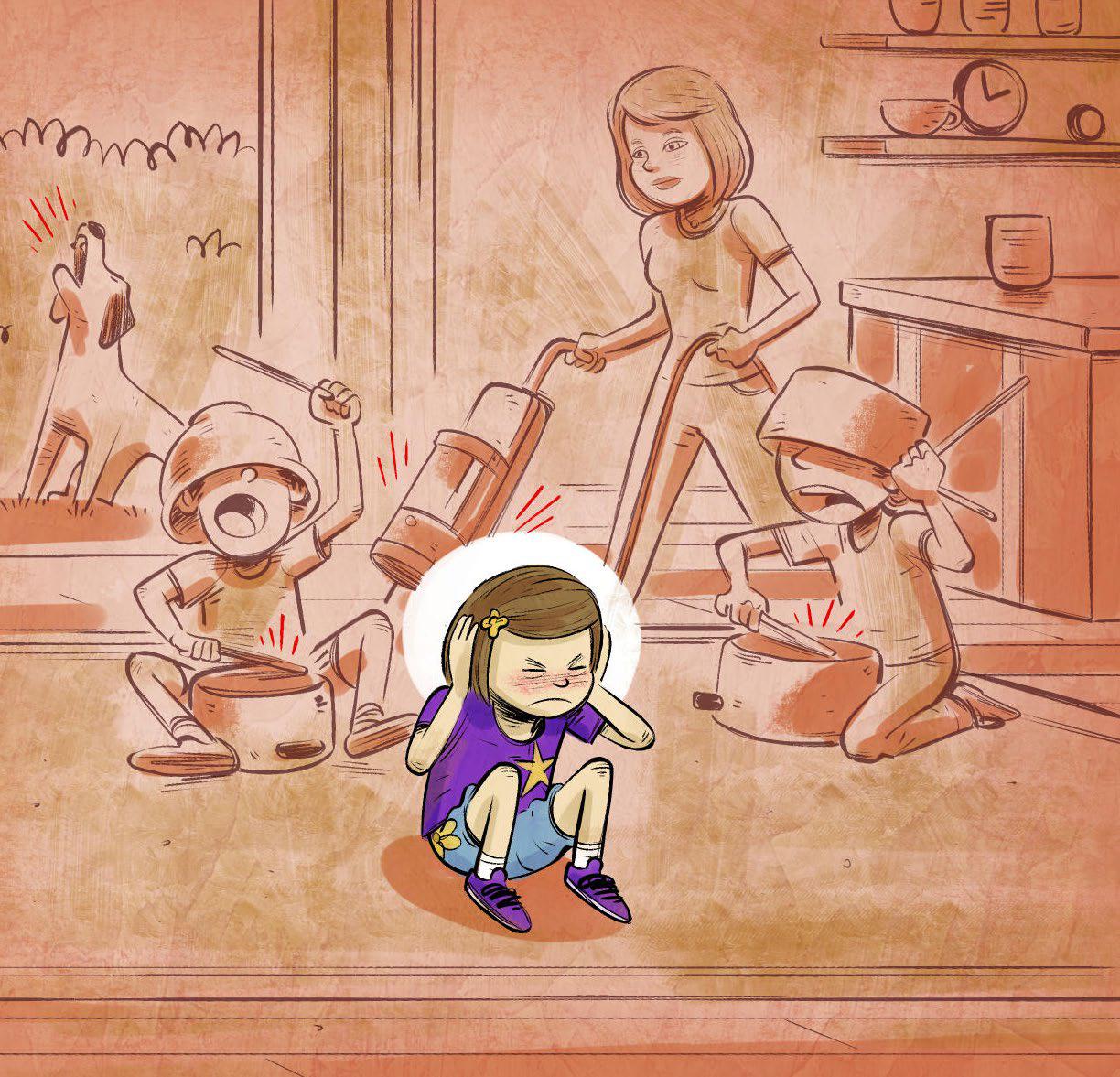
Social communication and interaction skills can be challenging for children with ASD. Examples of social communication and social interaction characteristics related to ASD can include:
- Avoids or does not keep eye contact
- Does not respond to name by 9 months of age
- Does not show facial expressions such as happy, sad, angry, and surprised by 9 months of age
- Does not play simple interactive games like pat-a-cake by 12 months of age
- Uses few or no gestures by 12 months of age (for example, does not wave goodbye)
- Does not share interests with others by 15 months of age (for example, shows you an object that they like)
- Does not point to show you something interesting by 18 months of age
- Does not notice when others are hurt or upset by 24 months (2 years) of age
- Does not notice other children and join them in play by 36 months (3 years) of age
- Does not pretend to be something else, like a teacher or superhero, during play by 48 months (4 years) of age
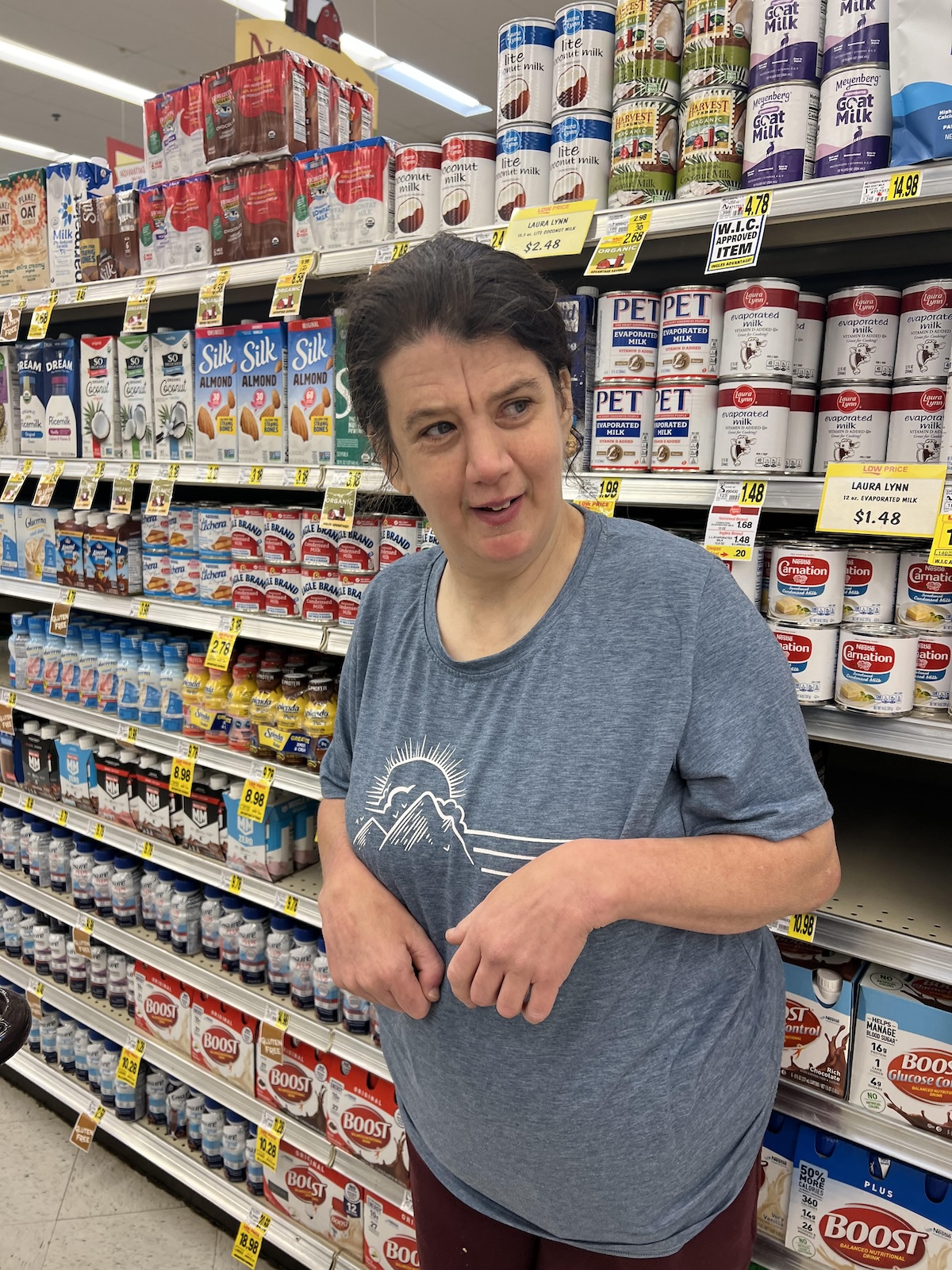
Authoritative parenting is often considered the most effective and balanced approach for children with autism. It combines clear expectations with warmth and support, which can help children feel secure while promoting their development.
Nora has involved Jennie as much as possible in everyday life experiences, including eating out at restaurants and shopping trips. These skills teach her to become more independent. That is exactly how Vikki Voorhees Condrey is raising her adopted son.
Adopting a child with autism
Luca came to live with his grandmother in Dawsonville, Georgia, when he was five years old. Vikki and her husband, James, started the process of adopting him in 2018. Luca’s biological father refused to legitimize him, which slowed the undertaking, but in August 2022, the adoption became a reality.
“It hasn’t always been easy. I can remember being asked to leave restaurants and other public places with Luca. There’s been a lot of training and coaching on what to do and how to act. He has come a long way in the past nine years. Time outs and positive reinforcement have helped,” explained Condrey.
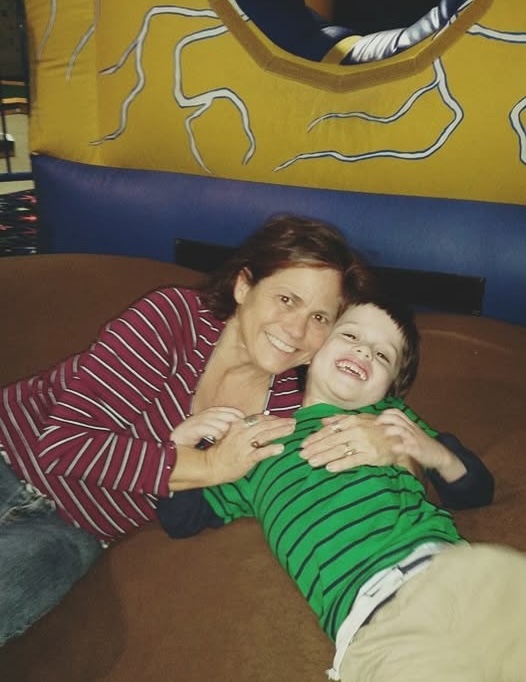
Luca has become a quick learner with her guidance and through his school where teachers seemed to understand him. He has learned to count to 100. He likes music, art, swimming, therapeutic horseback riding, and gymnastics.
As the adopted mother of a child with autism, Condrey advises not to plug an autistic child in front of the TV or an iPad but to acclimate them to real-life activities. That includes what they eat.
“Food therapy is important. Whether eating out or cooking at home, I try and introduce Luca to a new food every day. His diet and daily physical and mental activities keep him healthier.”
Vikki’s husband, James, passed away earlier this year. She runs a business. She and Luca now support each other.
“Luca has chores at home. He brings in the groceries and takes out the trash. He lets the dog out and feeds our cat.”
Superpower or not – You Matter
“I’m seeing a generation of kids whose parents are involved with their careers and absorbed in social media. I feel that children are being left behind to find their own value. Part of the reason for the book was to help them understand their value,” explained Nora Almazan.
Vikki Voorhees Condrey agrees that Nora’s concept of including “people that aren’t like you” is invaluable.
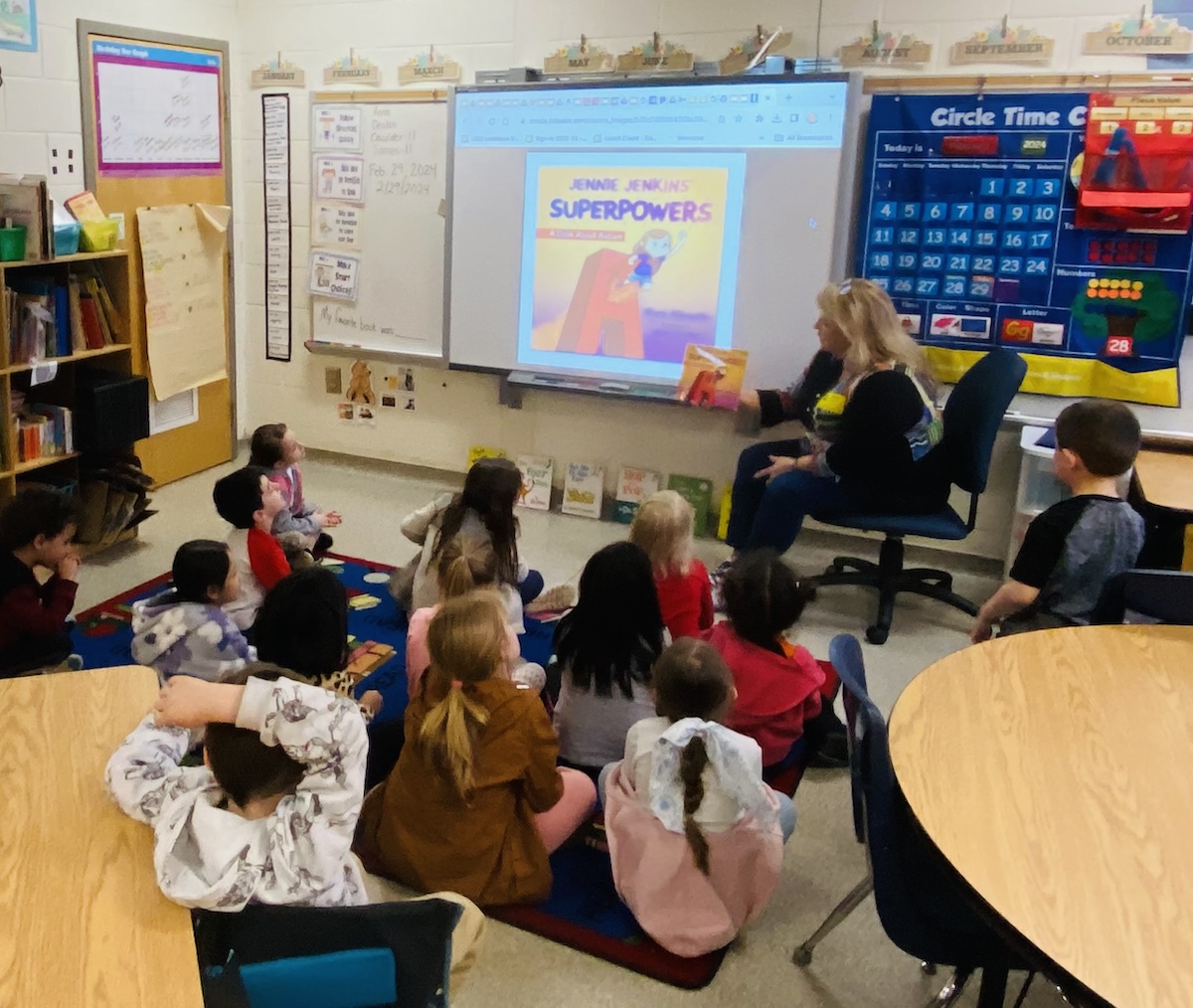
“I think books like Jennie Jenkins’ Superpowers should be required reading! I can’t wait to read it to Luca. I like to read to him, and he loves turning the pages.”
Pam White Stevens taught Special Education in Memphis, Tennessee, for 28 years. Although it was a challenging career that required much patience, she loved it so much that she would have done it for no pay.
“I loved Nora’s book. It would be great for any Special ED teacher to read in their classroom, and it could help parents of any child to better understand and respect children with autism,” said Stevens.
Nora also authored another book called You Matter. It perfectly describes the uniqueness of every child and all the wonderful ways we can express ourselves. It’s about the adventures of Tony Baloo, an overstuffed bear who found himself on the shelf of a second-hand store, who wants everyone to know “You Matter” and that being different is as wonderful as being similar.

Both Jennie Jenkins’ Superpowers and You Matter showcase the need for everyone to understand that what makes us different also makes us special.
Autism and your child’s future
Families of children with autism and support organizations across the country have a common goal: to help Jennie, Luca, and the more than 5 million people in the U.S. live life fully. Like Nora and Vikki, they include being hands-on with daily coaching for everyday tasks and responsibilities that many might take for granted.
There are also numerous options for kids who want to go to college. According to Yellow Bus ABA Therapy Services, some of the highest-rated colleges for autistic students include the University of Alabama, the University of Arkansas, and California State University. You can visit their website here for more information and to learn about scholarship opportunities.
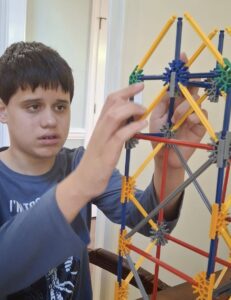
If higher education isn’t a good fit for your child, there are also employment options.
“Luca is now 14 years old, but at some point, I believe he could have a part-time job even for only three hours or so a day. He is great at sorting and organizing,” said Condrey.
Getting a job for a person with autism can be difficult as they might not know what their skills are or have trouble keeping a job with needs that are different from other typical employees.
These employers have been identified as a good match for someone with autism:
- AMC Theaters: Works with the FOCUS program, which gives autistic people the same opportunities to earn wages and benefits as typical associates.
- Chevron: Works with PathPoint, which helps place people with autism into jobs that match their skills well.
- CVS: Works with people with autism to provide job training and connect them with a job coach who can help them find a job that meets their skills.
- Ford: Developed FordInclusiveWorks to help those with autism get jobs in the company and combat issues that people with autism face in keeping jobs.
- Google: States on its website that they accept, thrive, and benefit from the skills that people with autism bring to the workforce. They also allow for accommodations during the interview and training processes.
- Grocery Stores (Kroger, Giant Eagle, etc.): Many grocery stores will hire people with autism of all ages, from teens to adults, to do entry-level jobs such as bagging, cart return, and stocking.
- Home Depot: Both CVS and Home Depot work with the same group to help those with autism get job training and match their skills to jobs. According to the company, 1,000 people with autism have been matched with jobs at Home Depot to date.
- JP Morgan Chase: Launched the Autism at Work program to hire those with autism and allow them access to needed accommodations in the workforce.
- Lowe’s: Has won many awards for its inclusive workplace. Once hired, the company offers many opportunities, such as scholarships, tuition reimbursement, job coaching, and skill training.
- Walgreens: Works with the group “retail employees with disabilities” and has a special evaluation process for those with disabilities to ensure they are placed in a job that promotes and uses their strengths.
- Walmart: Scored a 100% on the Disability Equality Index (which measures how well a company is doing with hiring, training, and keeping employees with disabilities).
It takes a team
Nora’s words brought Jennie’s story to life, but it wouldn’t have been the same without the illustrations by Jason Fowler. He is also the author of several children’s books. To learn more about his work, click here.
“Jason has a heart for children like I do. It was a great team effort for the book.”

Everyone has a valuable skill, whether it’s a superpower or not. For all the children who have been diagnosed with autism or will be in the future, Jennie Jenkins’ Superpowers and You Matter could be a great place to start on the journey. Both books are available through Amazon. To order Jennie Jenkins’ Superpowers, click here. To order You Matter, click here.

